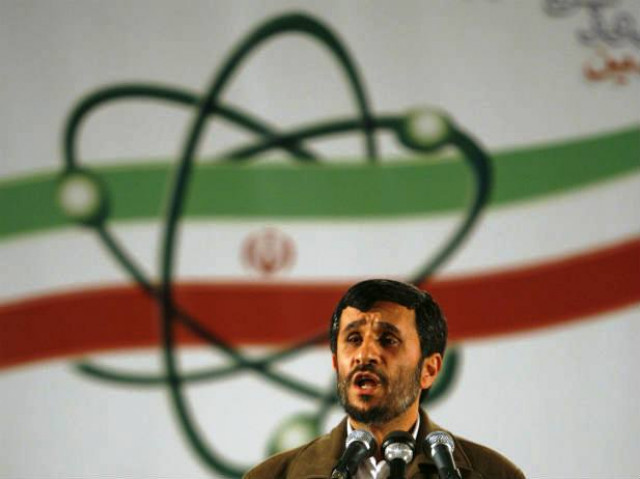Iran and UN nuclear watchdog talks to focus on military base
IAEA is interested to access Parchin military base, where it believes suspicious explosives testing are carried out.

Western powers and Israel suspect Iran is trying to develop a bomb behind the veil of its civilian nuclear programme, a charge denied by Tehran which says it is developing civilian atomic power and making medical isotopes.
The UN's International Atomic Energy Agency (IAEA) is especially interested in access to the Parchin military base near Tehran, where it believes suspicious explosives testing has been carried out.
The agency has said new satellite imagery indicates "extensive activities" at the base, which some experts see as signs of a clean-up.
In the Vienna talks Friday, the IAEA chief inspector Herman Nackaerts and deputy director general Rafael Grossi will meet Iran's ambassador to the agency, Ali Asghar Soltanieh.
The agency's chief Yukiya Amano visited Iran last month after promising talks in Vienna, and said afterwards that the two sides were close to a deal, adding this week that their differences had "narrowed".
He said however that much work was still needed before a deal was reached.
"If we do not have access to the Parchin site or other people, information and sites, then... we cannot give assurance that all the activities in Iran have peaceful purposes," Amano said.
Western diplomats have since said Iran seems to be dragging its feet.
The so-called P5+1 group -- the United States, Russia, China, Britain, France and Germany -- revived talks with Iran in Istanbul in April and met again in Baghdad in May, though little was achieved.
They are to meet again in Moscow on June 18 and 19.
Barring progress, an EU oil embargo against Iran will come into force on July 1, adding to a range of sanctions imposed under UN resolutions.
Iranian officials have repeatedly said in recent months that making, owning and using atomic weapons is "haram" (forbidden) under Islam.
Iran's regime on Thursday underlined its message that Western powers must recognise Tehran's "right" to enrichment if talks in Moscow are to advance.
Russia's President Vladimir Putin told Iranian counterpart Mahmoud Ahmadinejad that Moscow supports "the right of the Iranian people to modern technologies, including the peaceful use of atomic energy".
"But I want to emphasise that it is peaceful that we are talking about," Putin said at their meeting in in Beijing.
US Secretary of State Hillary Clinton, speaking in Istanbul, called on Iran "to come prepared to take concrete steps" at the Moscow meeting.



















COMMENTS
Comments are moderated and generally will be posted if they are on-topic and not abusive.
For more information, please see our Comments FAQ